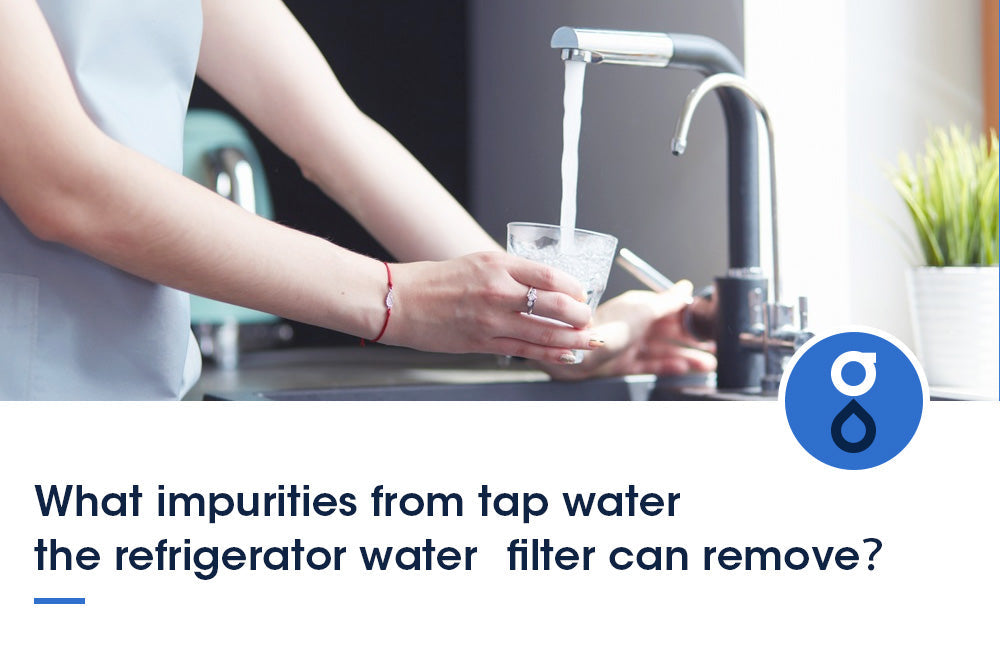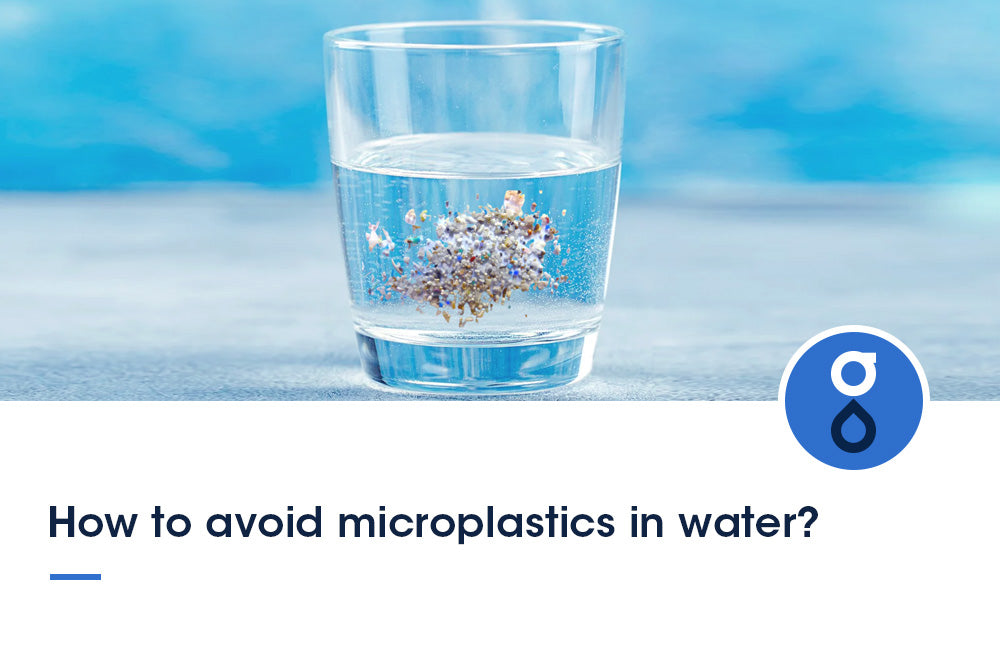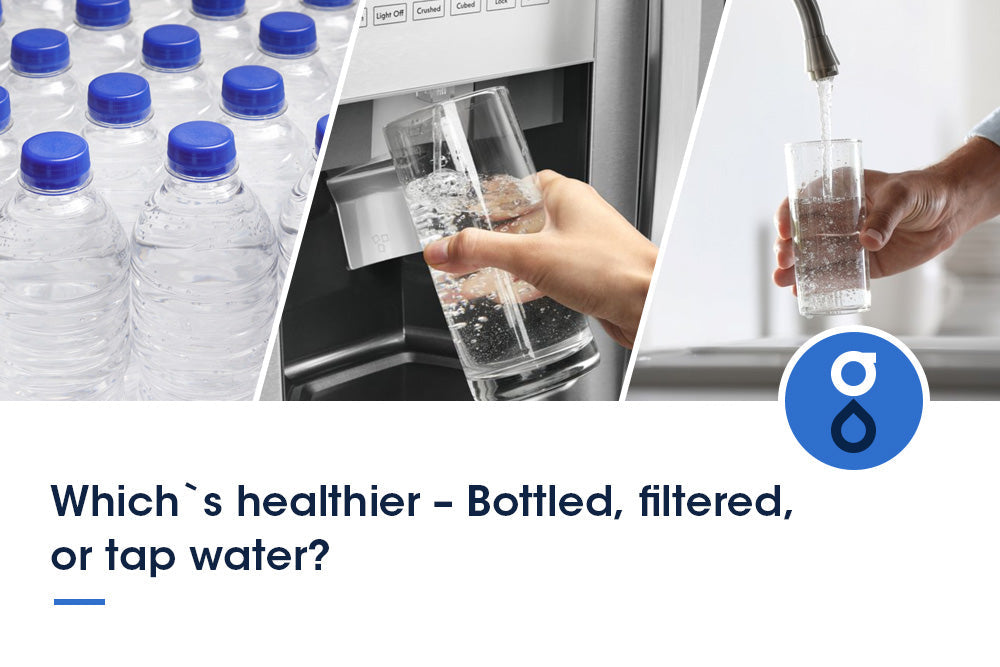Table of Contents:
Common impurities found in tap water
Different types of refrigerator water filter systems
Tap water VS filtered water
Choose the best refrigerator water filter for your home
FAQs
Conclusion
Tap water is an essential part of our daily lives and can often contain impurities that can be unhealthy or unpleasant. A refrigerator water filter can remove many of these impurities. Still, it's essential to understand what they are and how the filter works to ensure it will do its job correctly.
In this article, we'll discuss the impurities in tap water that a refrigerator water filter can remove. We'll also explore how the filter works and how often it needs to be replaced. By understanding more about the refrigerator water filter, you can ensure your tap water is clean and safe for drinking, cooking, and cleaning. Read on to learn more about the impurities that can be eliminated using a fridge water filter.
Common impurities found in tap water
Chlorine
Chlorine is a common impurity found in tap water, and it can make tap water taste and smell unpleasant. Refrigerator water filters can remove chlorine from your drinking water, making it an excellent choice for removing the unpleasant chlorine taste and odors that come with higher levels of chlorine. Not only will this help you enjoy your drinking water more, but it could also potentially reduce harmful health effects caused by consuming too much chlorine.
Lead
Lead is one of the impurities commonly found in tap water that a refrigerator water filter can remove. Lead leaches into the water supplies from household fixtures and industrial sources and can cause severe health complications when ingested. Eliminating lead from tap water also improves its softer taste and reduces detergent residues and other environmental pollutants.
Arsenic
Arsenic is one of the common contaminants from water, and it can lead to severe health issues if consumed for too long. Fortunately, refrigerator water filters can easily remove arsenic from your drinking water. In addition to eliminating arsenic, these filters help reduce virus transmission and soften hard water by pulling calcium and magnesium ions.
Mercury

Tap water contains many impurities that can harm our health, including mercury. It's essential to know the testing methods for detecting mercury levels in tap water and the different filter types available. The right refrigerator water filter can help remove mercury from your drinking water, protecting you and your family from potential health concerns.
Bacteria
Tap water can contain various contaminants, including bacteria that can cause severe waterborne diseases. While some filtration systems can reduce the levels of nitrates and other impurities, they can often not wholly remove bacteria from tap water. That's why investing in a refrigerator water filter explicitly designed to remove bacteria from tap water is essential.
Pharmaceuticals
Recent studies have revealed that tap water can contain traces of pharmaceuticals and other chemicals, making it vital to filter out these impurities. Drug metabolism, chemical runoff, and other sources can contribute to an unsafe level of contaminants in our drinking water. As a result, a refrigerator water filter is essential for ensuring that the tap water we use is free from harmful chemicals.
Pesticides
Pesticides can seep into groundwater sources, contaminating our drinking water. While a refrigerator water filter can help reduce the number of pesticides in your home’s tap water, it cannot eliminate all of them. To achieve complete removal, you should consider investing in a water-softening system designed to remove more than just sediment and chlorine.
Different types of refrigerator water filter systems
Activated carbon filters
Activated carbon filters are widely used for refrigerator water filtration. These refrigerator filters come in different designs and offer different types of filtration levels. The two main types of activated carbon filters used in fridge filters are granular activated charcoal (GAC) and carbon block filters.
The GAC filter consists of tiny particles of carbon, which filter out more significant impurities from water. It provides a cheaper alternative to the carbon block filter. Meanwhile, carbon block filters are made from compressed carbon powder and offer high absorption and adsorption capacity.
Activated carbon filters play a significant role in ensuring water is free from contaminants and producing better-tasting water. These filters can remove chloramine, chlorine, pesticides, and other chemicals that might be present in tap water while improving the unpleasant taste and bad odor of water. They are essential to a fridge water filter, providing a reliable, refreshing, and clean water source.
Reverse osmosis system
Reverse osmosis systems are water filtration systems that removes dissolved inorganic solids from water using a semipermeable membrane. This membrane allows water molecules to pass through while trapping contaminants like salts, minerals, and other impurities.
Although reverse osmosis can remove many contaminants, it's usually combined with sediment and activated carbon filters to remove even more. These additional filters can help to remove larger particles and organic chemicals that the RO system may miss.
One of the main benefits of using a reverse osmosis system is that it produces high-quality water that's up to 99.9% pure. This type of water is perfect for applications like making coffee since it ensures a consistent and pure flavor. However, there are some drawbacks when using a reverse osmosis system.
One major issue is that RO systems can produce a large amount of wastewater, which can be costly and not environmentally friendly. Additionally, reverse osmosis systems can be expensive to install and maintain since they require multiple filters to work effectively.
Sediment filtration and ultraviolet sterilization system
Sediment filtration is a technique that physically separates common contaminants from tap water by using dense or fibrous materials such as fabric, paper, or sand. The process involves passing tap water through multiple layers of these materials, which trap and hold particles larger than the material's pores, leaving behind clean water. The efficiency of sediment filtration systems depends on the size of the pores and the surface area of the filter. The smaller the pores and the larger the surface area, the more efficient the filtration process.
On the other hand, UV sterilization systems use ultraviolet radiation to kill microorganisms present in tap water. These systems use lamps that emit UV radiation, which damages the DNA of microorganisms, rendering them unable to reproduce or cause harm. The process is fast, efficient, and does not require chemicals. Besides, UV sterilization systems eliminate the risks of harmful side effects, making them an excellent alternative for people sensitive to chemicals.
Combining sediment filtration and UV sterilization systems results in efficient and effective tap water purification. Sediment filtration removes physical impurities, while UV sterilization eliminates harmful microorganisms such as viruses and bacteria. When used together, filter cartridges and UV lamps work in tandem to provide safe, clean drinking water. Combining both techniques offers reliable and efficient tap water purification to ensure safe drinking water for households.
Tap water VS filtered water

Tap water and filtered water are two different types of water that we consume in our daily lives. While tap water is a readily available water source that comes directly from the municipal water supply system, filtered water is tap water that has gone through a filtration process to remove impurities. It is essential to understand the differences between these two types of water and the benefits of using a water filter. T
ap water can contain harmful contaminants that can be detrimental to our health. These impurities include sediment, microorganisms, organic chemicals, heavy metals, and chlorine. While some municipalities take measures to ensure the safety of their water, contamination can still occur. Consuming tap water that contains these impurities can increase our risk of developing health problems, including gastrointestinal issues, liver and kidney damage, reproductive problems, and even cancer.
A water filter can help to remove these harmful impurities, significantly reducing our risk of developing health problems. Activated carbon filters and reverse osmosis systems are two common types of water filters that can effectively remove impurities from tap water.
An activated carbon filter adsorbs the impurities onto its surface, while a reverse osmosis system uses a semipermeable membrane to remove the impurities from the water. Tapping into our municipal water supply can be convenient, but it can also come with potential health risks. A water filter, such as an activated carbon filter or reverse osmosis system, can remove harmful impurities from tap water, significantly reducing our risk of developing health problems.
Choose the best refrigerator water filter for your home
When choosing the right refrigerator water filter for your home, you must consider several factors to ensure you get the most effective filtration. Before settling on a refrigerator water filter, consider the impurities from drinking water it can remove. Check out its filtration capacity and replacement frequency to ensure you get the best value for your money. Replacement frequency is essential to ensure you get clean, fresh-tasting water.
If you have a large family, choose a filter with a higher filtration capacity to ensure it can handle the volume of water you need. Choosing the right refrigerator water filter should be based on your unique requirements. A carbon filter will work best if you're concerned about chlorine, foul odors, and organic chemicals in your tap water. A reverse osmosis filter is perfect if you need clean drinking water and are willing to invest more.
FAQs
Are there any side effects from using a refrigerator water filter?
Using a refrigerator water filter has no known side effects. However, it is always important to follow the instructions with the filter. The filter should be changed regularly to maintain its effectiveness and ensure you're getting clean, pure water.
Do refrigerator water filters remove bacteria and viruses from tap water?
Yes, refrigerator water filters can remove bacteria and viruses from tap water. Many popular filter brands are NSF certified to reduce up to 99% of contaminants, including chlorine, lead, sediment, cysts, and other impurities.
What are the differences between a refrigerator water filter and a pitcher filter?
A refrigerator water filter is installed directly in the fridge and filters the water as it passes into the dispenser or ice maker. A pitcher filter must be filled manually with tap water and typically uses activated carbon to reduce specific pollutants.
Conclusion
The refrigerator water filter can remove impurities from tap water, making it healthier and safer to drink. It's essential to regularly change your filter, as the contaminants will build up over time and reduce its effectiveness. Using a refrigerator water filter is a great way to ensure you're drinking clean and safe water that's free of impurities.
However, remember that while it will remove most contaminants, it may not be able to filter out all bacteria and viruses, so it's essential to follow additional safety measures when drinking tap water.

















